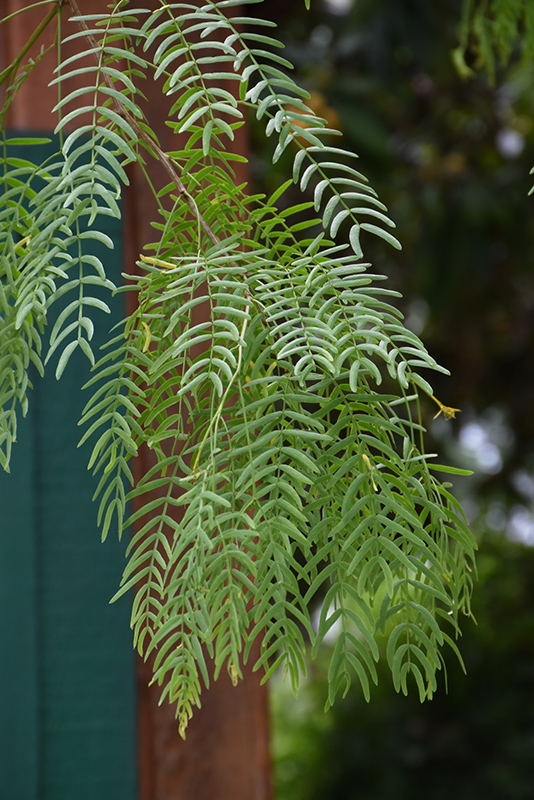Plant Finder
Maverick® Thornless Texas Honey Mesquite
Prosopis glandulosa 'Maverick'
Height: 35 feet
Spread: 35 feet
Sunlight:
![]()
Hardiness Zone: 7a
Description:
This thornless, deciduous tree rapidly forms a dense spreading canopy of twisted branches with lacy, bright green foliage; fluffy clusters of yellow flowers in spring, followed by large tan pods; provide infrequent deep irrigation
Ornamental Features
Maverick® Thornless Texas Honey Mesquite is draped in stunning clusters of yellow catkins along the branches in mid spring. It has attractive light green deciduous foliage. The small narrow pinnately compound leaves are highly ornamental but do not develop any appreciable fall color. The fruits are showy tan pods displayed from early summer to early fall.
Landscape Attributes
Maverick® Thornless Texas Honey Mesquite is a dense multi-stemmed deciduous tree with a more or less rounded form. It lends an extremely fine and delicate texture to the landscape composition which can make it a great accent feature on this basis alone.
This tree will require occasional maintenance and upkeep, and should only be pruned after flowering to avoid removing any of the current season's flowers. It is a good choice for attracting birds to your yard. It has no significant negative characteristics.
Maverick® Thornless Texas Honey Mesquite is recommended for the following landscape applications;
- Shade
- Mass Planting
- Hedges/Screening
- Windbreaks and Shelterbelts
Planting & Growing
Maverick® Thornless Texas Honey Mesquite will grow to be about 35 feet tall at maturity, with a spread of 35 feet. It has a low canopy with a typical clearance of 4 feet from the ground, and should not be planted underneath power lines. It grows at a fast rate, and under ideal conditions can be expected to live for 60 years or more.
This tree should only be grown in full sunlight. It prefers dry to average moisture levels with very well-drained soil, and will often die in standing water. It is considered to be drought-tolerant, and thus makes an ideal choice for xeriscaping or the moisture-conserving landscape. It is not particular as to soil type or pH. It is highly tolerant of urban pollution and will even thrive in inner city environments. This is a selection of a native North American species.; however, as a cultivated variety, be aware that it may be subject to certain restrictions or prohibitions on propagation.




